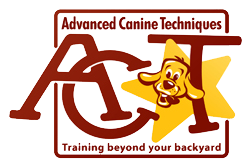Over the last few years more and more household products that we use on a daily basis have been found to have cancer causing properties. These include cleaning supplies, air fresheners, scented candles, dryer sheets, toiletries such as shampoos, conditioners, body sprays and even toothpaste and mouthwash.
Many people are moving toward all-natural personal products and cleaners using items such as vinegar, borax, baking soda, distilled water, essential oils, etc. and making their own products.
In the last two years I have discovered the benefits of using essential oils for myself and my dogs. I wanted to share a little bit of what I use and why. It is important to recognize that all animals and people respond to essential oils differently, so the best suggestion is to go slow and use small amounts at first. There is also a lot of controversy regarding essential oils, so it is important to do your research. I have found that using carrier oils and observing my pets helps me determine which oils work best for my dogs. The two companies that I recommend are Doterra and Young Living. These oils are a little bit more expensive, but I know I am using a 100% pure oil that is safe for everyone in my household. Make sure to store your oils in cool places and use dark bottles clearly labeled with what is in the bottle. (If a bottle is not labeled, do NOT use it on yourself or your pets).
You can apply the oils through your hands by petting your dog, applying them directly by adding drops to their fur or through a carrier oil such as fractionated coconut oil, almond oil or v6 oil. The y can also be sprayed on bedding, a collar or bandana. Some oils can be administered orally and others can be administered via a spray bottle or diffused. Giving them to your dog internally can include adding to drinking water, putting them in a vegetable capsule or adding them to food. If you add to food or water, make sure to use a porcelain or steel bowl and wash after each meal. Always remember if you add to water to also leave a fresh bowl of water out so your dog has a choice and if you diffuse an oil to leave the option for your dog to leave the room. Monitoring and observing your pet is the most important test to determine how your pet will respond to the oils.
There are a number of books, article and facebook groups that you can read or join to learn more. The better educated you are, the better choices you can make for you and your family. I am still learning and will continue to read, watch webinars and learn more to help my dogs and try to serve as a reference for you. A few books that I have read include
- Essential Oils for Dogs by Mirand Ross.
- Essential Oils for Natural Pet Care by Melissa Shelton, DVM
- The Animal Desk Reference, Essential Oils for Animals by Melissa Shelton, Holistic Veterinarian
- Essential Oils Animal Desk Reference by Life Science Publishing
There is also an excellent facebook group called Essential Oil Vet by Janet Roark, DVM
- For anxious or nervous behavior I like to use Peace and Calming, Chamomile, Lavender, Balance, Valor, Geranium and/or Melissa.
- For dogs that are nervous in the crate and/or suffer from separation anxiety, grounding is a great blend
- Helichrysum helps with wound care
- For cleaning up potty accidents and smells in the house or car, purification is the best oil and one of my favorites
- For dogs that get car sick, a small amount of peppermint oil can calm your dog down in the car
- Tea tree oil with a carrier oil can be used for rough paw pads and pads that split.
- Digest Zen or Digize can be used for diarrhea and digestive updates
- On Guard is good for abbesses and immune support
- You can also mix oils together to create your own flea repellent including purification, repel aroma, eucalyptus and Thieves household cleaner. There are a variety of different oils that can be used to help with fleas and ticks.
- Young living also makes an animal scents line that can help with hot spots, chewing on fur, itching and allergies.
There is an excellent chapter in the Animal Desk reference book about how a musher uses the oils with his sled dogs and what I found the most interesting was that oils worked in certain situations and with certain dogs but at other times it was not effective. The most important aspect to using any oil is really paying attention to the reaction of your dog.
If you are interested in attending a workshop on essential oils (no pressure to buy-just information and the chance to see anyone who is interested.
We would love to hear from all of you about your experience with oils and how they have helped your pets.
